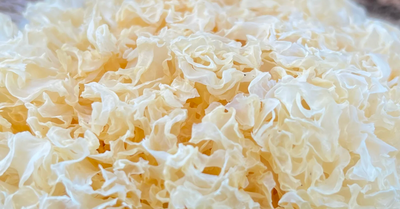
Endocrine Disruptors Explained

Endocrine Disruptors Explained
Endocrine Disruptors Explained
Simply put, the term 'endocrine disruptor' categorises any chemical that impacts our hormones. Our endocrine system is the network of glands and organs that create and secrete hormones across the body; therefore, anything that unbalances or disturbs this process is considered a disruptor. As we've already discovered in our hormone balancing article, keeping the endocrine system in tip-top condition ripples rewards across the body – so let's delve into common disruptors and how to avoid them.
How can a disruptor disrupt?
Our development from foetus to adult, as well as long-term health and wellbeing, is substantially affected by hormones. These little messengers race around our bodies, telling our cells, tissues, and organs how to function, grow, reproduce, metabolise, and protect our bodies from disease. Disruptors interfere with this intricate system. In some cases, they mimic, tricking the body into thinking they're a helpful hormone when they're not. At other times, disruptive chemicals block natural hormones from doing their job or decrease hormone levels, so they can't send messages effectively. Disruptors can make us more or less sensitive to hormone messages, impact hormone production and how long hormones stay in our bodies.
Like an unwelcome house guest, these chemicals can mess up our well-organised home. So, let's name some particularly troublesome visitors, understand how they get in and try to lock them out.
Top common endocrine disruptors
Bisphenol A (BPA)
We talked about BPA in our toxins article, but if you didn't see that – BPA is an industrial chemical used to produce polycarbonate plastics and epoxy resins. Often found in products that store food and drink, BPA is even found on receipts. It's one of those most common chemicals in our world, so common that more than 90% of us have BPA in our bodies right now.
The problem is, BPA mimics estrogen. Therefore, absorption has been shown to negatively affect our metabolism, neurodevelopment, immunity, fertility, reproduction, and puberty. It's also linked to certain cancers and should be avoided when pregnant and breastfeeding so as not to impair foetal brain development.
It's not good stuff. Where possible, avoid storing or heating food in plastic containers; say no to receipts; never heat food in the can; and switch to glass or ceramic food storage.
Dioxins
Dioxins are a group of chemicals known as 'the dirty dozen' released into the atmosphere as a by-product of industry, manufacturing, and natural events such as forest fires. They are persistent organic pollutants (POPs) which means they break down slowly. This helps them weave into food chains and stay there for years.
Consumption of food and water is our main source of contamination. Fatty foods such as meat, poultry, seafood, milk, and eggs are the leading sources. Once in our system, the most potent dioxins have been linked to disrupting hormone signalling, reproduction and immunity, and increasing cancer risk.
So, how do we avoid them? According to WHO, we should choose lean meats and fish and cut away fat from meats during meal preparation. In addition, a varied diet is essential, packed with fruits, vegetables, and whole grains over meat and seafood.
PFAS chemicals
PFAS are a family of thousands of artificial chemicals known as 'forever chemicals'. They make things nonstick, waterproof, anti-stain, and grease-resistant; therefore, are commonly found in any product that repels or stays clean. They're hugely useful but have damaging side effects. They not only interfere with hormones but also mimic fatty acids. This has been shown to negatively impact the reproductive system, foetal development, immunity, and the development of some cancers.
Very few PFAS enter our body through the skin – most are inhaled from the air or drunk via drinking water, and there are a few things we can do to reduce our exposure. Look out for textiles with PFAS- or PFC-free labels and try to avoid cosmetics that contain 'fluoro' or 'PTFE' in their ingredients list. Dental floss often has a coating, so a 'PTFE free' product will help. Most importantly, filter water and favour nonstick cookware, as well as home-cooked meals over takeaways.
These are three of the most common endocrine disruptors, and while they may seem overwhelming, it's important to remember that preventing exposure entirely is unavoidable in modern society. This doesn't mean we're all doomed - the best we can do is educate ourselves and our family, then avoid where possible. More companies are becoming aware of endocrine disruptor health implications and as such developing alternatives or removing them from manufacturing processes. In the meantime, quick wins can be found in filtering water; avoiding over-polluted places; eating a varied, organic, low-fat diet; and being conscious of how we store and cook our food. These simple adjustments will go a long way to supporting our endocrine system.










